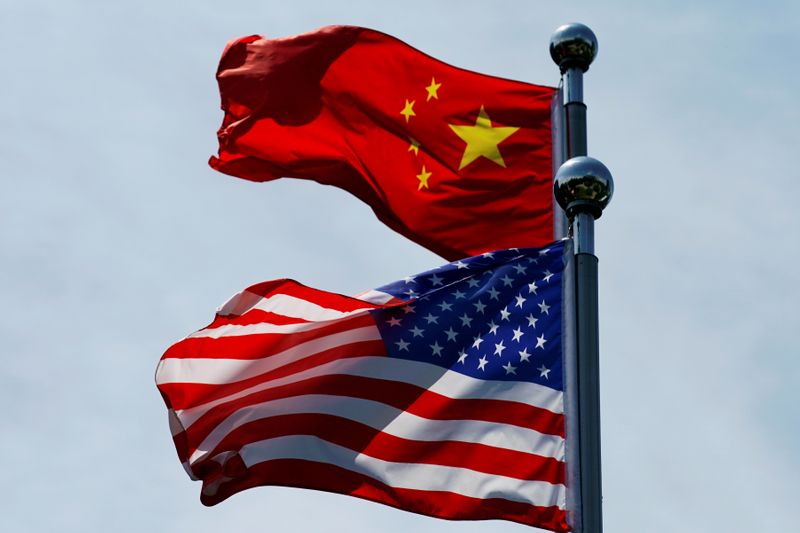WASHINGTON (Reuters) - The U.S. House of Representatives on Thursday reintroduced a bipartisan bill that would ban imports from China's Xinjiang region unless it is certified they are not produced with forced labor, and allow further sanctions against Chinese officials responsible for abuses against Muslims.
The updated version of legislation that passed the House 406-3 in the previous Congress in September is similar to a Senate version that was reintroduced last month, having been held up in the previous session.
The House bill would authorize the U.S. president to apply sanctions against anyone responsible for labor trafficking of minority Uighurs or other Muslims in Xinjiang, a leading producer of cotton and cotton products.
It would also require financial disclosures by listed U.S. companies about engagement with Chinese firms and entities engaged in abuses, a provision not included in the Senate version.
"We have watched in horror as the Chinese government first created, and then expanded a system of extrajudicial mass internment camps targeting Uighurs and Muslim minorities," said Democratic Representative Jim McGovern in reintroducing the bill. He charged that the Xinjiang economy was "built upon a foundation of forced labor and repression."
"Many U.S., international, and Chinese corporations are complicit in the exploitation of forced labor and these products continue to make their way into global supply chains and our country. It is long past time for the Congress to act," he said.
A U.N. panel said in 2018 that it had received credible reports that at least 1 million Muslims had been detained in camps in Xinjiang. China denies abuses and says its camps provide vocational training and are needed to fight extremism.
At the heart of the U.S. bills is a "rebuttable presumption" that assumes goods from Xinjiang are made with forced labor and banned from the United States unless there is "clear and convincing" evidence to the contrary.
While the legislation has had strong bipartisan support, congressional aides say it has been the target of lobbying by firms with supply-chain links to Xinjiang.
Republican Senator Tom Cotton of Arkansas called China's government "a new evil empire", and blasted some American corporations for resisting the bills.
"I think it's disgraceful that some corporate leaders in America have spent the last year lobbying against sanctions on Chinese officials for using slave labor in Xinjiang province, and they don't want to have accountability for their own supply chains in China," Cotton said during a event on a new report he released on countering China.
"If I were a corporate leader in American, I would pack up and get out," he said.
The Biden administration endorsed a Trump administration determination that China has committed genocide in Xinjiang and has said the United States must be prepared to impose costs on those responsible.

Trump imposed sanctions on Chinese officials and firms linked to abuses in Xinjiang and also announced a ban on cotton and tomato products from the region.